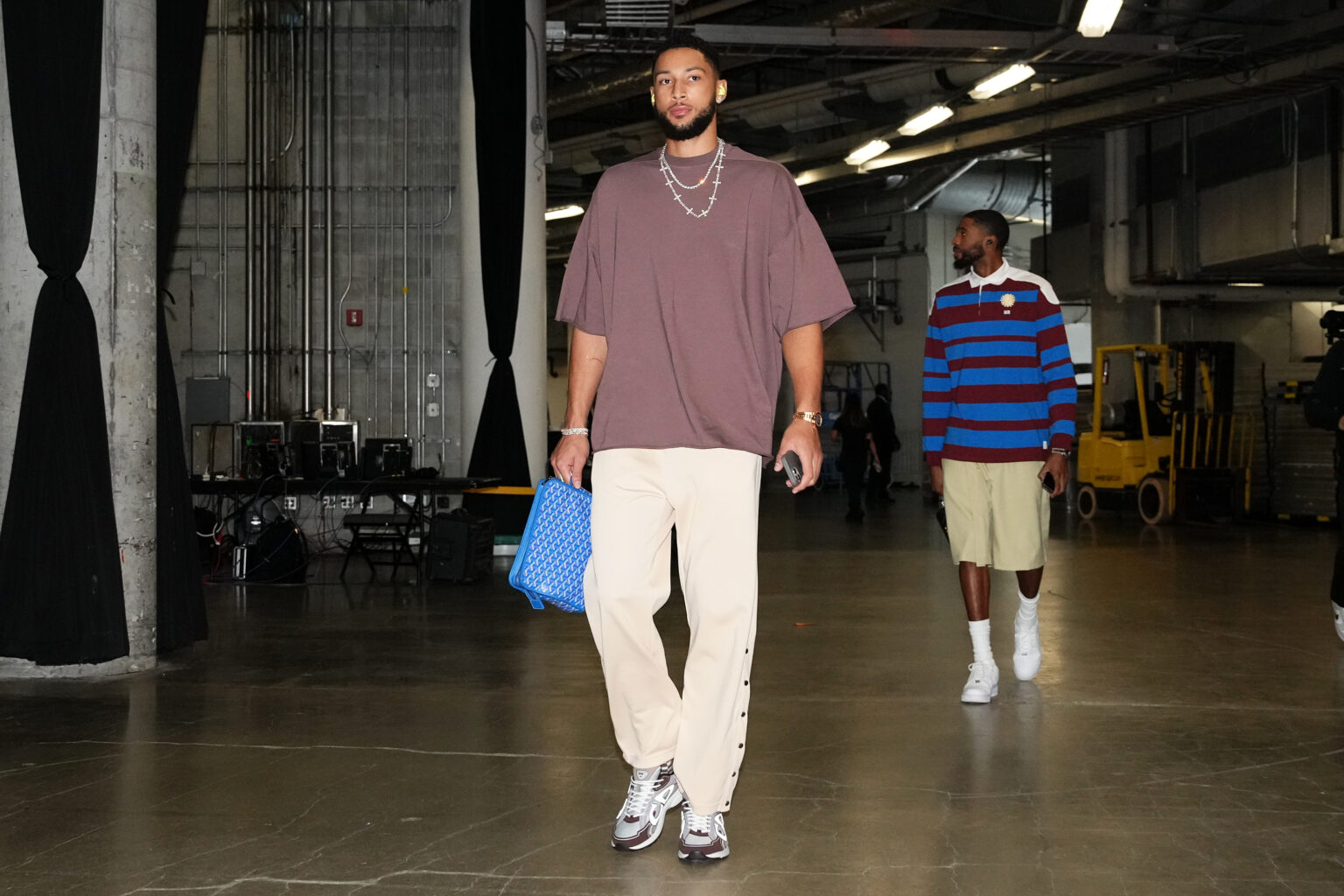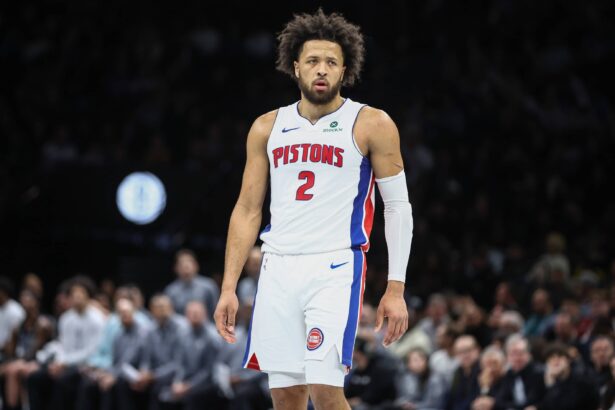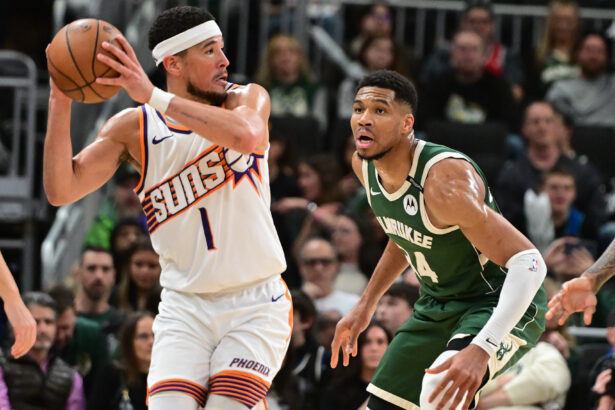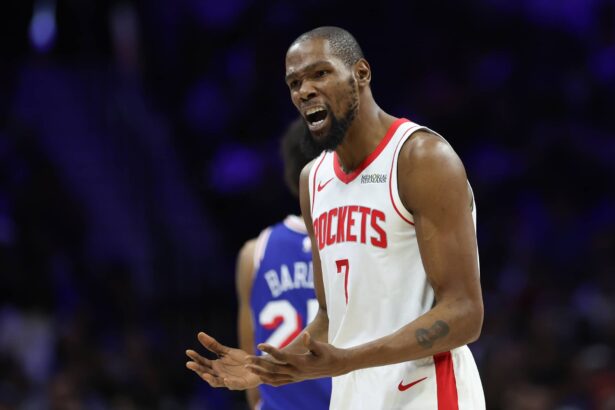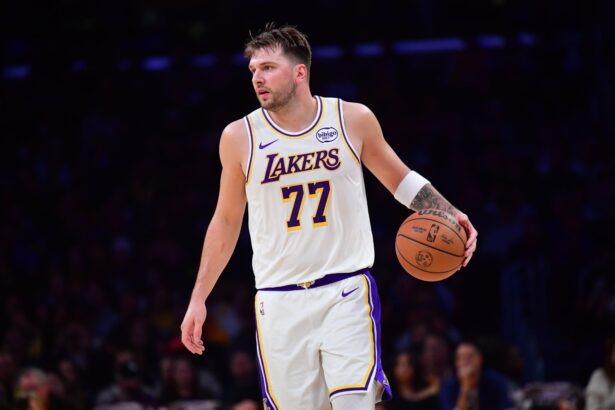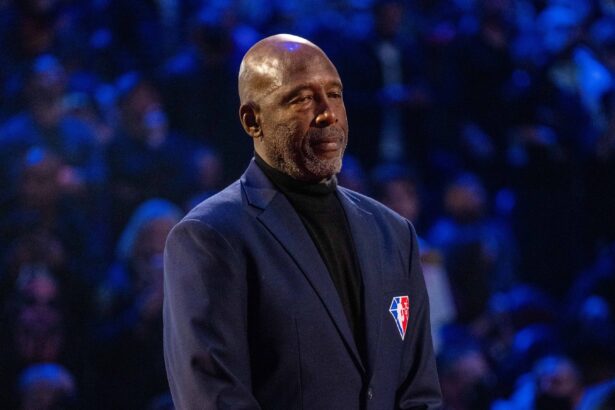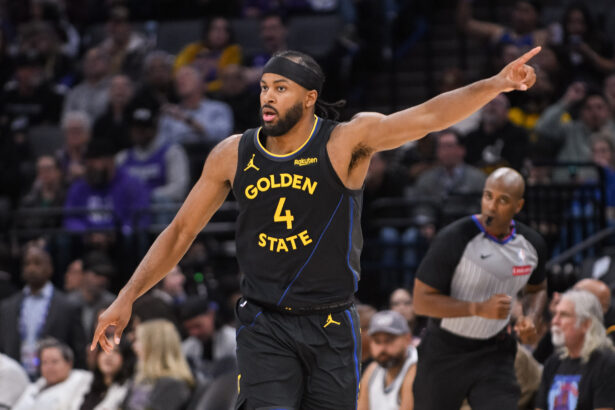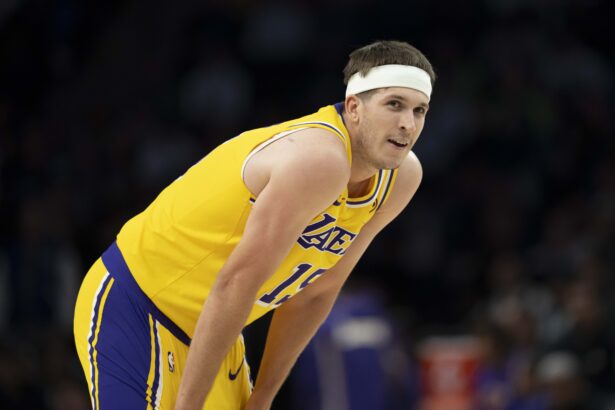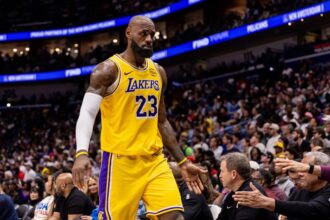Ben Simmons’ stint with the Brooklyn Nets has been plagued by injuries, with the Australian guard missing a significant portion of the current season. Simmons’ availability issues were highlighted with a striking stat: out of the last three seasons, he has played only 48 games while missing a staggering 153.
Out of the 37 games played this season, Simmons has been absent for 31, owing to a nerve impingement in his back. The absence has drawn criticism, especially considering his substantial salary and the expectations associated with his acquisition.
In those six games that he played, he averaged 6.5 points, 10.8 rebounds, 6.7 assists on 52.8% shooting from the field.
Simmons’ struggles with injuries have been a recurring theme in his career. In the 2021-22 season, he missed the entire campaign due to a combination of mental health concerns, a trade dispute with the Philadelphia 76ers, and back problems. He then played only 42 games in the 2022-23 season as again had issues with his back.
Despite his claims of regaining full fitness in the off-season, Simmons has managed only six appearances this season, and a return timetable remains uncertain due to his ongoing back issues.
Coach Jacque Vaughn provided an update on Simmons’ progress, mentioning that he recently participated in an on-court workout with coaches. However, the Nets continue to exercise caution, and Simmons’ return remains undetermined.
The uncertainty surrounding Simmons’ availability raises questions about the future, as he is set to earn $40.3 million for the 2024-25 season, the last year of his current contract. With ongoing recovery efforts and contractual commitments, the Nets face a challenging situation regarding Simmons’ contribution and impact moving forward.
Ben Simmons Should Have Availablity Clauses In His Next Contract
Considering Ben Simmons‘ ongoing struggles with injuries and availability, incorporating availability clauses in his future contracts might be a prudent move for NBA teams. This approach, recently seen with Zion Williamson’s contract, involves stipulations related to maintaining weight and appearing in a certain number of games.
Simmons, who has faced consistent challenges in staying on the court due to various health issues, could benefit from such contractual clauses. As the player seeks his next contract, it’s unlikely to be a massive one given his recent performance and the need to prove himself again. In the last three seasons, Simmons has faced setbacks, including missing an entire season and struggling with back problems.
While Simmons has demonstrated All-Star capabilities at his best, potential suitors might be cautious about committing to a substantial contract. Availability clauses would provide teams with financial flexibility in case Simmons continues to face challenges in staying fit and contributing consistently on the court.
Simmons’ journey back to a lucrative contract could involve proving himself through shorter contracts, during which he would need to establish both his performance and durability. Despite his potential to be a superstar, Simmons has yet to reach his peak, and the lack of a reliable jumper remains a significant concern.
By including availability clauses, teams can mitigate the financial risk associated with Simmons’ uncertain availability. This approach aligns with the evolving trend in contracts, where performance and fitness benchmarks are becoming integral components, especially for players with injury histories. As Simmons navigates his future in the NBA, the inclusion of availability clauses could be a pragmatic solution for both the player and potential suitors.
We sincerely appreciate and respect you as a reader of our site. It would help us a lot if you follow us on Google News because of the latest update.
Thanks for following us. We really appreciate your support.

